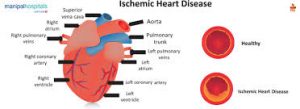Kounis Syndrome:

A prominent Indian industrialist death due to bee sting which raised questions about rare allergic reactions named Kounis Syndrome and sudden heart attacks in healthy adults.
- Kounis Syndrome is a rare medical condition where an allergic reaction triggers a heart problem.
- It is classified as a form of Acute Coronary Syndrome (ACS)–a term typically used for conditions like heart attacks–brought on by an allergic or hypersensitivity response.
- It is sometimes referred to as allergic angina or allergic myocardial infarction.
- It occurs when a person is exposed to a trigger–such as an insect sting, drug, or food–the body’s immune system activates mast cells, which release chemicals including histamine and cytokines.
- These substances:
- Cause sudden spasm or tightening of coronary arteries
- May rupture or erode existing plaque, worsening any blockages
- Reduce blood flow to the heart, leading to ischemia (lack of oxygen) or infarction (tissue death)
- Types of Kounis Syndrome
- Type I: Occurs in individuals with normal coronary arteries. The allergic reaction causes spasms, reducing blood flow and potentially leading to a heart attack.
- Type II: Affects those with existing coronary disease. The allergic reaction destabilises plaques, causing rupture and a full heart attack.
- Type III: Seen in patients with coronary stents. The allergic response may lead to clot formation within the stent.




